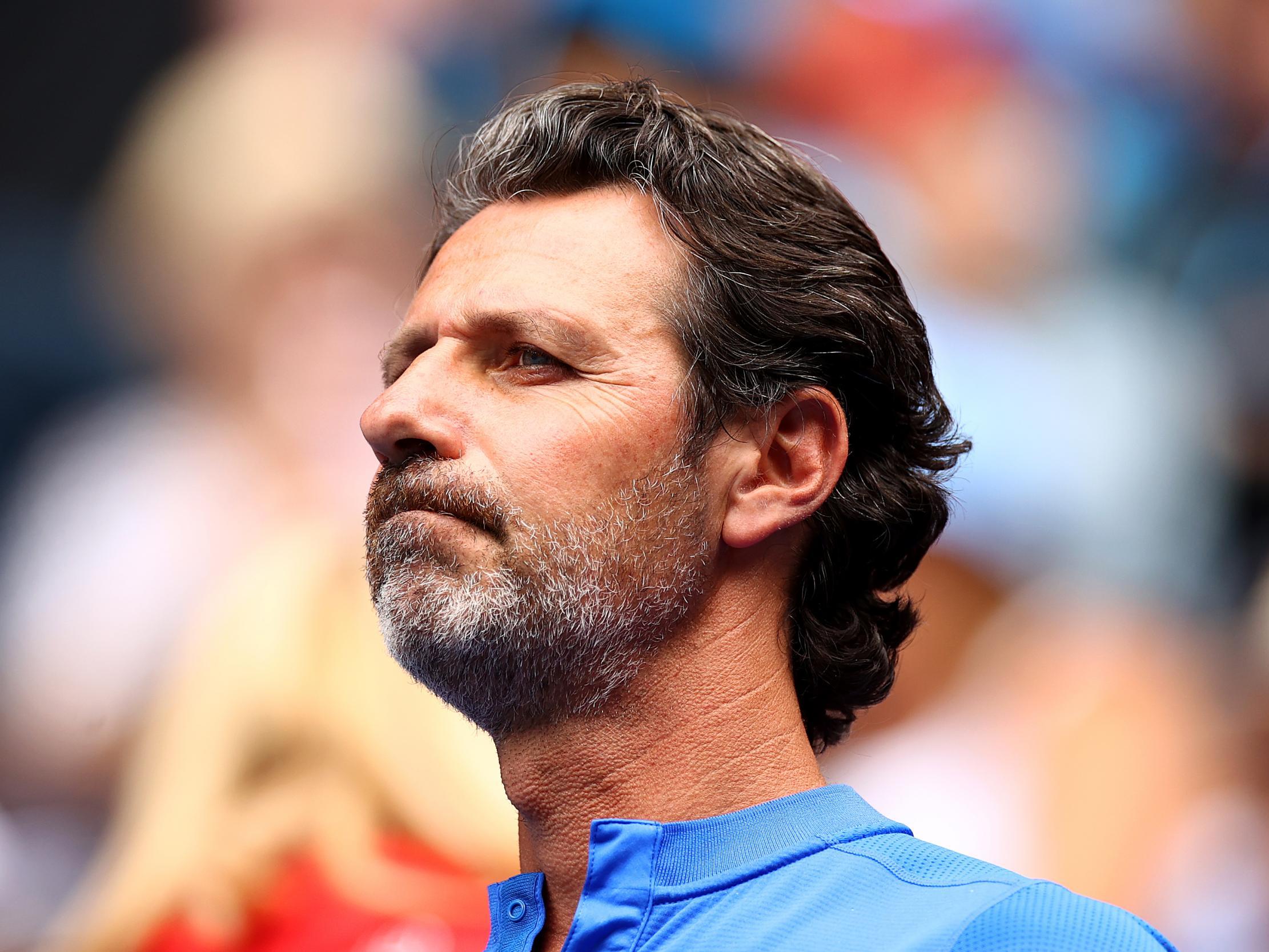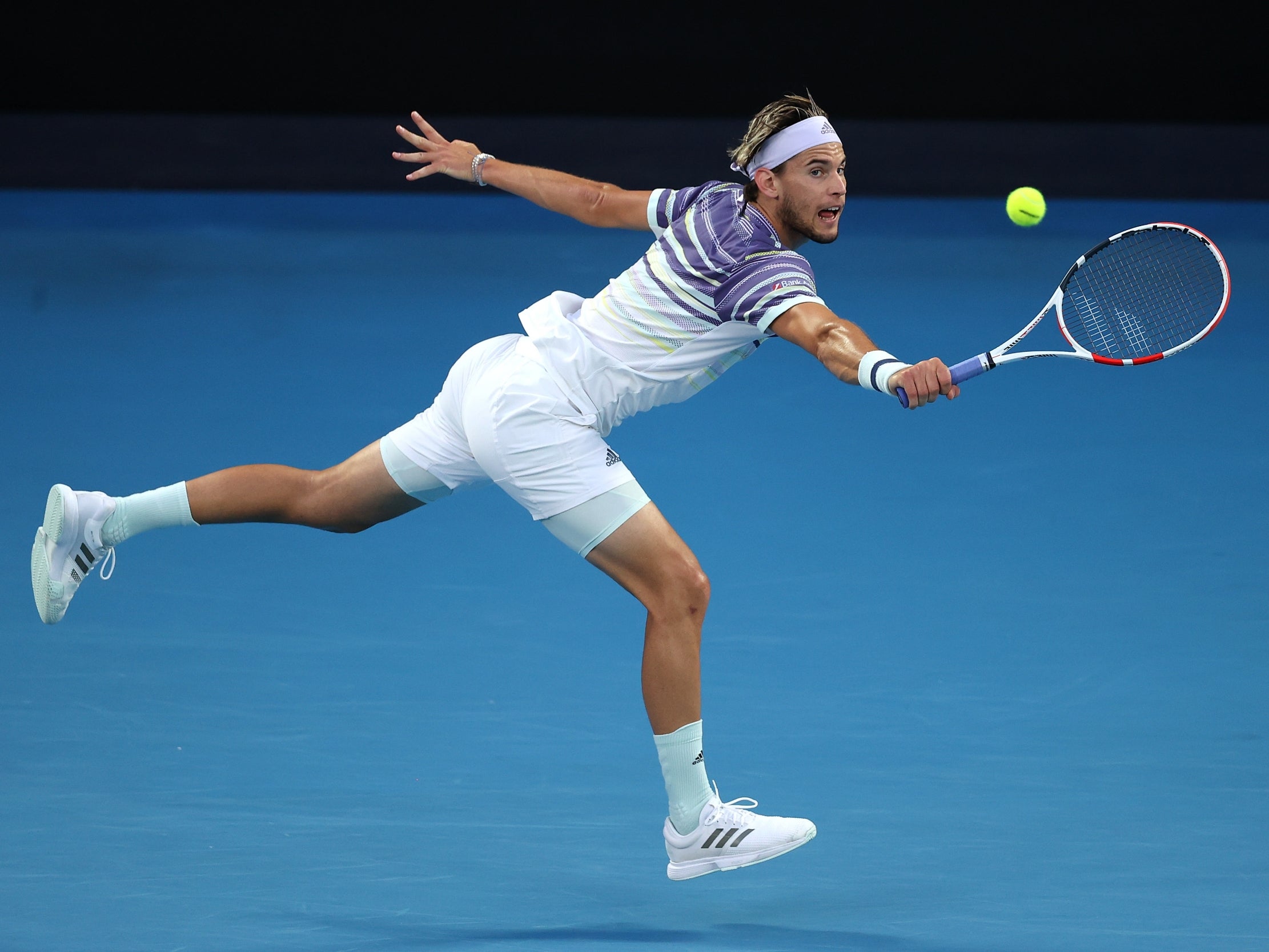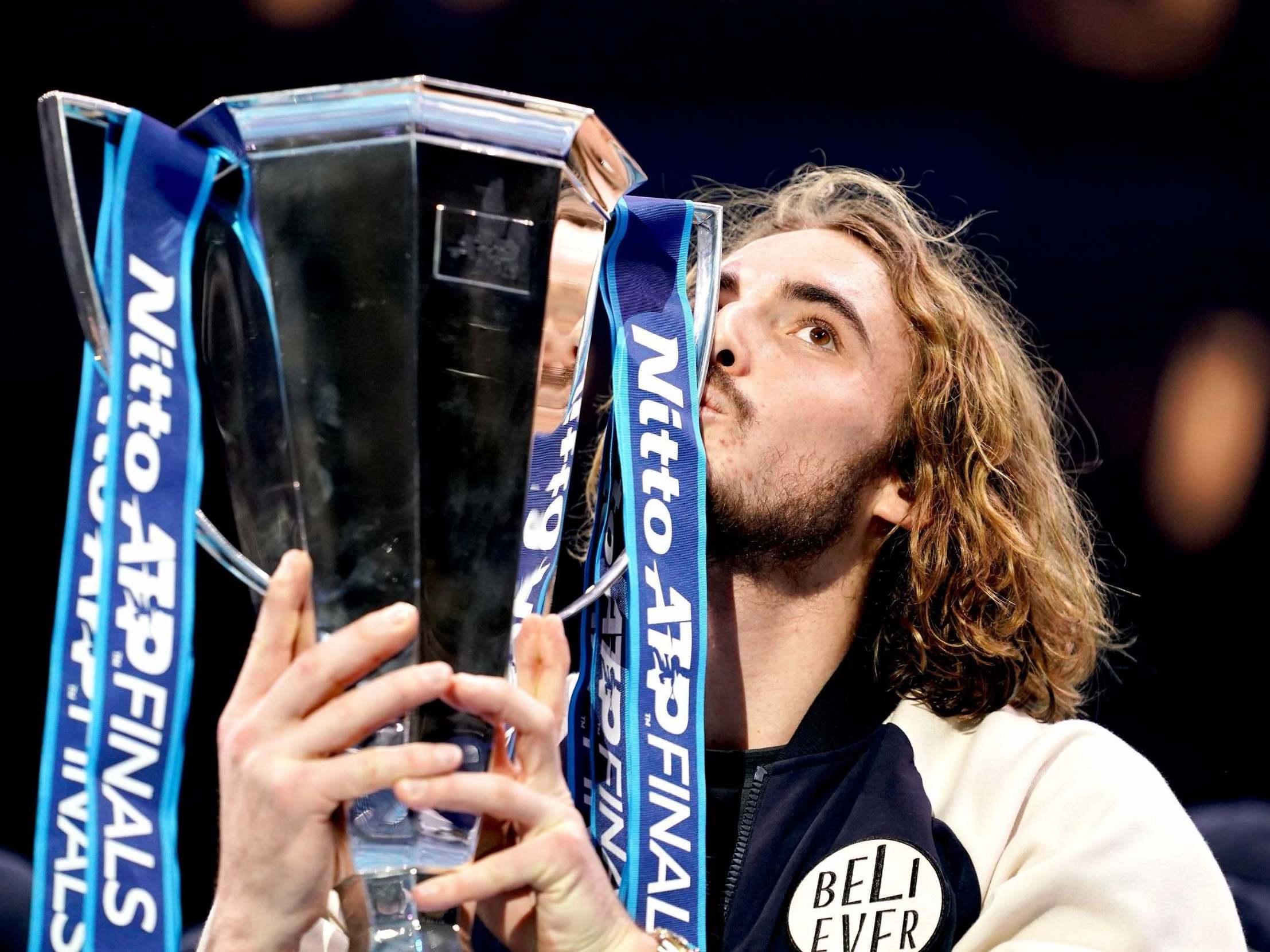Ultimate Tennis Showdown: Patrick Mouratoglou unveils tennis's answer to T20 cricket
Exclusive interview: Coach to Serena Williams has devised a new format for the game that will feature leading players Dominic Thiem and Stefanos Tsitsipas

Your support helps us to tell the story
From reproductive rights to climate change to Big Tech, The Independent is on the ground when the story is developing. Whether it's investigating the financials of Elon Musk's pro-Trump PAC or producing our latest documentary, 'The A Word', which shines a light on the American women fighting for reproductive rights, we know how important it is to parse out the facts from the messaging.
At such a critical moment in US history, we need reporters on the ground. Your donation allows us to keep sending journalists to speak to both sides of the story.
The Independent is trusted by Americans across the entire political spectrum. And unlike many other quality news outlets, we choose not to lock Americans out of our reporting and analysis with paywalls. We believe quality journalism should be available to everyone, paid for by those who can afford it.
Your support makes all the difference.Patrick Mouratoglou admits that he knows “absolutely nothing” about cricket, but the Frenchman will launch a competition this weekend which he hopes will have the same effect on tennis as Twenty20 has had on the sport of Ben Stokes and Virat Kohli. Mouratoglou, the coach of Serena Williams, believes that his Ultimate Tennis Showdown, which starts on Saturday at his academy in the south of France, can bring new fans into a sport which he fears no longer appeals to many of the younger generation.
UTS will feature 10 players competing in a league over the next five weekends. The matches will be broadcast via a live streaming platform, with subscribers paying about £9 a month.
The likes of Dominic Thiem, Stefanos Tsitsipas, David Goffin and Matteo Berrettini, who are all in the world’s top 10, will play each other in quickfire matches featuring a number of innovations which Mouratoglou believes will keep the attention of fans in a way that the traditional form of the game can fail to do.
Might UTS do for tennis what Twenty20 has done for cricket? While the traditional longer form of cricket, including Test matches, continues, Twenty20 has brought in huge audiences, both in stadiums and on television. Mouratoglou believes that two types of tennis could also work alongside each other.
Stressing that he does not see himself as a rival to the Association of Tennis Professionals and the Women’s Tennis Association, which run the men’s and women’s tours, Mouratoglou insisted: “My goal is to grow the number of fans around the planet so it will be good for the whole tennis industry. If in the future the ATP and WTA want UTS to be under their umbrella, with maybe one tour for traditional fans and another for a different audience, that’s 100 per cent fine by me.”

UTS matches will last for a maximum of one hour and will be divided into four quarters of 10 minutes each, all played in the style of a tie-break, with players taking it in turns to serve two points in a row.
A deciding point will be played if scores are level at the end of a quarter. If the score is 2-2 after four quarters the match will go to sudden death, with the serve changing after each point and the winner the first to win two points in a row. There will be a time limit of just 15 seconds between points.
Coaches will be able to call for one 30-second coaching time-out during each quarter, in which they can communicate with their players via headsets. All communications between players and coaches will have to be in English and will be heard by viewers. At changeovers the players will answer questions from interviewers.
Players will have the chance to use two “UTS cards” in each quarter. The benefits of the cards include having three serves on one point, making your opponent take only one serve on a point and winning two points if you hit a clean winner.
“The matches will be much shorter and much more dynamic than people are used to,” Mouratoglou said. “I don’t want people to be watching for 20 minutes while almost nothing happens. This happens in modern tennis, but it won’t happen in UTS. I want things happening every two or three minutes. I want people to jump out of their couch experiencing a lot of different emotions.”
There will be no fans courtside because of current French rules concerning the coronavirus pandemic, while matches will adhere to strict start and finish times.
“If you love watching Tsitsipas you can see that he is scheduled to play at, for example, 3pm and you know that he will be playing at 3pm,” Mouratoglou said. “At the moment in tennis if you want to follow Tsitsipas and he is supposed to play at 3pm you could end up waiting more than two hours for him to play.”
All the players are guaranteed nine matches, with the competition ending in two semi-finals and a final. Each player will have a “purse”, which is in relation to their world ranking and will range from $5,000 (about £4,000) to $30,000 (£23,800). For each match, the equivalent of both players’ purses will go into a pot, from which the winner will take 70 per cent and the loser 30 per cent.
UTS will have a looser code of conduct than in traditional tennis. Mouratoglou believes that one of the reasons why fans complain there are “no characters” in the sport compared with the days of John McEnroe and Jimmy Connors is that the punishments handed out under today’s disciplinary code mean that players are discouraged from expressing themselves and instead try to outdo each other in terms of being “nice” to one another.

Although UTS will have its own code of conduct – for example players will not be allowed to insult opponents verbally or physically – nobody will be punished for smashing rackets or even for swearing. Mouratoglou believes that tennis should not be making moral judgements or sanctioning players for behaviour that would go unpunished if it happened anywhere else. “If I break my racket in the street am I going to go to jail?” he said.
What if parents complain about their children hearing bad language while watching UTS matches? “The world is what it is,” Mouratoglou said. “If you apply these restrictions to sport then you have to apply them to everything: don’t go to school, don’t watch a movie, don’t listen to music, because those are all places where you might hear language like this. Why should tennis be the only place in the world where everything has to be fake?”
Although UTS is launching at a time when international competition on the main tours has been suspended because of the coronavirus pandemic, Mouratoglou does not see it as a one-off. He envisages UTS matches being played every weekend throughout the year, with the possible exception of clashes with Grand Slam tournaments.
The other players taking part in the first edition will be Benoit Paire, Richard Gasquet, Lucas Pouille, Feliciano Lopez, Alexei Popyrin and Dustin Brown, while women will also compete in future events.
Asked how he would judge the success of his project, Mouratoglou said that ultimately it would be the number of subscribers. By the end of the first edition of UTS he hopes to have 50,000.
“In the 1980s tennis was modern, but the world has changed and tennis hasn’t,” he said. “The way tennis is showcased is old-fashioned in many aspects. UTS will take back from the past some of the things that used to make tennis so good and bring from the future what tennis can bring. It will be a combination of the best in the past and the best from the future.”
To subscribe to UTS click here.
Join our commenting forum
Join thought-provoking conversations, follow other Independent readers and see their replies
Comments